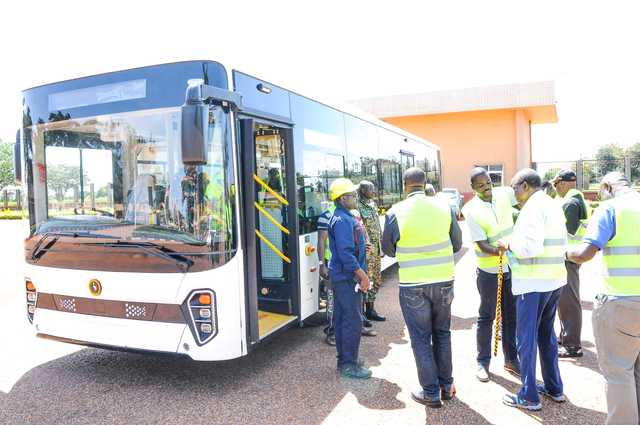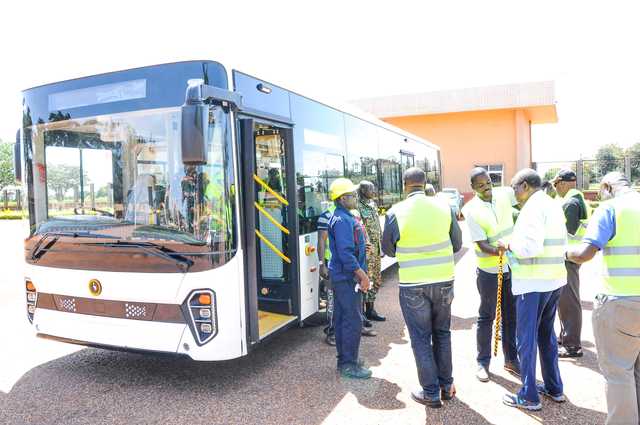Uganda Reinstates Tax on Electric Vehicles: A Step Backwards or Necessary Move?
Uganda has recently made headlines by reinstating a tax on electric vehicles (EVs), a move that has sparked considerable debate among environmental advocates, industry stakeholders, and the general public.


Uganda has recently made headlines by reinstating a tax on electric vehicles (EVs), a move that has sparked considerable debate among environmental advocates, industry stakeholders, and the general public.
The decision comes at a time when the global push towards greener transportation solutions is gaining momentum, raising questions about the implications for Uganda's nascent EV market and the broader goal of sustainable development.
The Background of Uganda’s EV Taxation
In a bid to encourage the adoption of electric vehicles and reduce the country’s carbon footprint, Uganda initially removed taxes on EVs.
This move was widely lauded as forward-thinking, aligning with global trends towards sustainable transportation and environmental conservation.
The tax exemption was seen as a crucial step in making electric vehicles more affordable for the average Ugandan, thereby promoting wider adoption.
However, the recent decision to reinstate taxes on EVs has reversed this policy. The government has cited various reasons for the move, including the need to increase revenue and address the country's fiscal challenges.
While the reinstatement may provide a short-term boost to the national coffers, it raises concerns about the long-term impact on the country’s environmental goals and the development of its EV industry.
The Economic and Environmental Implications
Reinstating the tax on electric vehicles is likely to have significant economic and environmental implications.
From an economic standpoint, the additional cost burden on consumers may deter many potential buyers from opting for electric vehicles, thereby slowing the growth of the EV market in Uganda.
This could also have a ripple effect on local companies involved in the EV supply chain, such as manufacturers, importers, and charging infrastructure providers.
Environmentally, the decision could be seen as a step backwards. Electric vehicles are a critical component of reducing greenhouse gas emissions and combating climate change.
By making EVs less accessible, Uganda risks undermining its efforts to transition to a more sustainable transportation system.
This is particularly concerning given the country’s vulnerability to the impacts of climate change, such as increased frequency of extreme weather events and disruptions to agricultural productivity.
Balancing Revenue Needs and Sustainability
The Ugandan government’s decision to reinstate the tax on electric vehicles highlights the complex balancing act that many developing countries face: the need to raise revenue to fund essential public services and infrastructure while also advancing sustainability goals.
In this context, the tax on EVs may be seen as a necessary move to address immediate fiscal pressures.
However, it is essential for the government to consider the long-term benefits of promoting electric vehicles.
Investing in the growth of the EV market could lead to job creation, technological innovation, and reduced reliance on imported fossil fuels.
Additionally, the environmental benefits of widespread EV adoption—such as improved air quality and reduced carbon emissions—are critical to the country’s overall well-being.
The Way Forward: Policy Adjustments and Incentives
To mitigate the potential negative impacts of reinstating the EV tax, the Ugandan government could explore alternative measures that balance revenue generation with the promotion of sustainable transportation.
For instance, the government could implement targeted incentives for electric vehicle buyers, such as tax rebates or subsidies, which would offset the cost of the reinstated tax and maintain the momentum of EV adoption.
Another approach could involve investing in the development of local EV manufacturing and assembly capabilities.
By fostering a homegrown EV industry, Uganda could reduce the cost of electric vehicles and create new economic opportunities, making EVs more accessible to a broader segment of the population.
Additionally, the government could consider using the revenue generated from the EV tax to fund the development of charging infrastructure and renewable energy projects.
This would create a supportive environment for electric vehicles and ensure that the transition to cleaner transportation aligns with the country’s broader sustainability goals.
Conclusion
Uganda's decision to reinstate the tax on electric vehicles is a controversial one, reflecting the broader challenges that developing countries face in balancing economic and environmental priorities.
While the move may address short-term fiscal needs, it also risks slowing the progress of the country’s EV market and undermining its environmental goals.
Moving forward, it will be crucial for the Ugandan government to carefully consider the long-term implications of this decision and explore policy adjustments that support both revenue generation and the promotion of sustainable transportation.
By doing so, Uganda can ensure that it remains on track to achieve its environmental objectives while also fostering economic growth and innovation in the EV sector.




